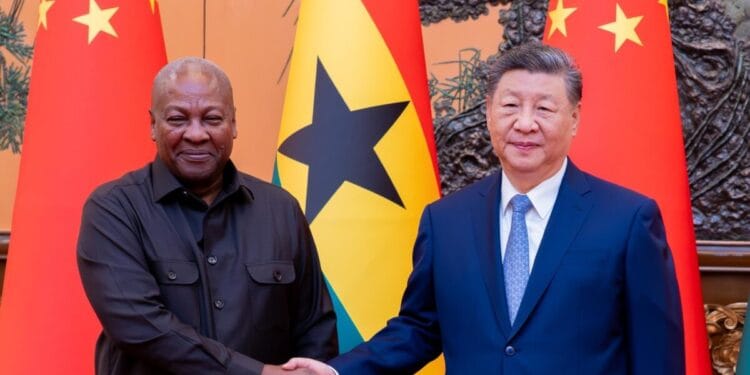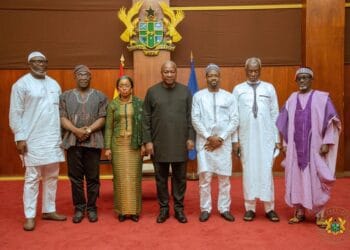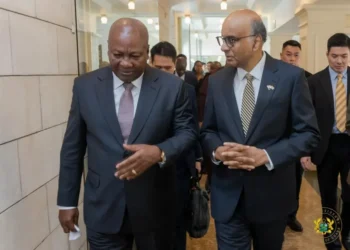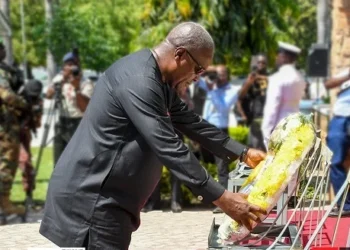Ghana is set to become one of the first African countries to enjoy complete zero-tariff access to the Chinese market, following a new trade arrangement confirmed during President John Dramani Mahama‘s recent state visit to Beijing.
Chinese Ambassador to Ghana, Mr Tong Defa, announced the development in Accra, describing it as one of the most significant outcomes of the high-level talks between President Mahama and President Xi Jinping.
Follow The Ghanaian Standard channel on WhatsApp for the latest news stories from Ghana.
The agreement grants duty-free treatment on 100 percent of Ghana’s export tariff lines, a move the Ambassador said would open the country’s products to one of the world’s most promising markets.
With China‘s population exceeding 1.4 billion, and its middle-income class projected to double from 400 million to 800 million, the policy is expected to create substantial new opportunities for Ghanaian exporters.
Ambassador Tong stressed that the arrangement is unilateral and does not require Ghana to reciprocate with tariff concessions. He explained that China is not seeking to expand its exports to Ghana but is instead taking a proactive step to support developing economies and stimulate industrial growth across Africa.
Technical teams from both countries are finalising the implementation modalities to enable the policy to take effect soon.
He noted that once operational, the policy will enhance the export prospects of cocoa and cocoa derivatives, cashew nuts, rice, shea butter, textiles, handicrafts and other processed agricultural products.
By granting full access, he said, the initiative will activate production capacity, attract investment, extend industrial value chains and accelerate Ghana’s broader industrial development.
The timing, according to Ambassador Tong, aligns strongly with Ghana’s industrialisation goals and directly supports the government’s proposed 24-Hour Economy policy.
He said China hopes Ghana will benefit as early as possible, referencing the nine percent rise in exports recorded by 33 least-developed African countries that received similar zero-tariff treatment after last year’s Forum on China-Africa Cooperation.
He highlighted the growing demand for African products in China, citing the popularity of Ghanaian chocolate, South African wines, Rwandan chilli sauces, Senegalese tuna, Kenyan avocados and Beninese pineapples.
Ghana’s increasing participation at the China International Import Expo, where local exhibitors recently showcased items including shea butter lotion, cocoa products, black soap and handicrafts, also signals strong market appetite.
Ambassador Tong further pointed to Ghana’s hosting of the African Continental Free Trade Area Secretariat, noting that the zero-tariff initiative complements the continent’s integration agenda and reinforces Ghana’s strategic position. He said China’s market “is always open to Ghana, and the door will open even wider.”
He emphasised that the partnership is rooted in mutual benefit, not exploitation, and described the policy as a boost for Africa at a time of global trade and tariff tensions.
He encouraged Ghanaian manufacturers, exporters and investors to seize the opportunity, while calling on the media to help raise public awareness and urging producers to increase value addition to maximise gains from the expanded market access.
Hundreds of Chinese companies already operating in sectors such as infrastructure, mining, aviation, manufacturing, green energy and oil refining are expected to deepen cooperation under the new arrangement, creating additional jobs and supporting Ghana’s economic growth.















